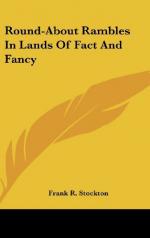But I do not think the Cormorants noticed any of these things. Their long necks were folded so that their heads nearly rested on their backs, for, as I said before, they were dozing. The truth is, these birds had eaten so much they had made themselves perfectly stupid, which is a bad way the Cormorant has, as, no doubt, you know; for it has probably happened to you some time in your life to have indulged yourself so freely in eating something that you liked that you have been scornfully called “a little Cormorant!”
But this state of insensibility was passing away, and they were now in a gentle doze, and sleeping, thinking of the company they were to entertain. For these Cormorants had come to this spot to meet their cousin the Pelican to consult with him on some family matters. Upon their first arrival at the place they had set to work to get together a good supply of fish, for this is the only food of both the Cormorant and the Pelican. In a short time they landed a great number, and bestowed them in a safe place, and then they set to work catching fish for themselves and eating them greedily.
You might suppose such a lazy-looking bird would find it impossible to catch anything so active as fish. But you should see it when it is fully awake and hungry. The bird darts through the water with a speed greater than that of the fishes. Its wings can be closed so tightly that they do not hinder its progress, and the tail serves for a rudder, while the broadly-webbed feet act as paddles. Its long, snake-like neck gives it the power of darting its beak with great rapidity, and the hook at the end of the beak prevents the prey from escaping. The bird is also a diver, and can stay a long time under water.
[Illustration]
Our two Cormorants opened their eyes when they heard a slight splashing in the water. Something was about to invade their retreat. They had not long to wait. Slowly into the stream waded a Bittern. Seeing the Cormorants there he stopped; and, drawing himself up into as small a compass as possible, he sunk his head in his shoulders, and nothing could be seen of his long neck, while his bill was thrust up in the air as if he cared nothing for his neighbors or their affairs. The Cormorants heartily wished he would go away, and they kept their eyes open and watched him, for fear he would spy the fish they had carefully hidden in the wet grass, for the Bittern also lives on fish. So the Cormorants winked and blinked, and thought how different the Bittern looked when on the alert for his prey, or calling his mate.
Many a time had they been roused out of their sleep by the terrible night-cry of the Bittern—a fearful sound, something between the neighing of a horse, the bellow of a bull, and a shriek of savage laughter, and so loud and deep it seemed to shake the marshy ground.
[Illustration]
Soon there appeared hovering over them a snowy cloud. As it floated nearer it proved to be a magnificent Pelican with its gigantic wings outspread. It alighted near the Cormorants, at the foot of a little grassy hill. It was an old male bird, very wise and very cunning. He greeted his cousin Cormorants cordially, but, ruffling up the crest of curled feathers on his head, and shaking his half-folded wings angrily, he looked askance at the Bittern.




